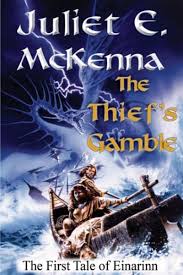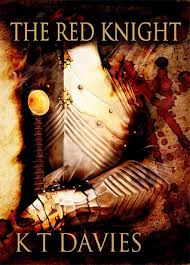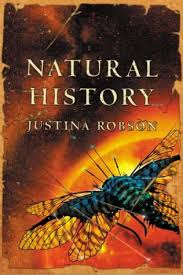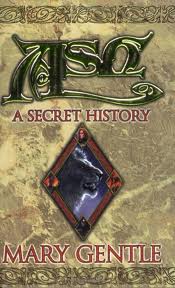So, You Don't Like Twilight
So, genre and gender is still making the SFF industry look ridiculous, now sufficiently so to catch the derisive attention of reporting well outside the genre, and at the same time as the ripples from that farrage(1) were still crossing the water, (NK Jemisin has a good take on it here) we got Foz Meadows' report that Waterstones' SFF primer is, well, skewed demographically in a way that does not represent the actual body of writers it is choosing from(2). Emma Newman has a very sound commentary here.
I'm not going to rehash my Big Serious Post. I did want to address a particular reaction I've seen to the highlighting of this issue, and the promotion of women writers. For example, one response to that Big Serious Post was:
"I'm seeing the inclusion of near pornographic "romance" into the SFF world as something to be fought against. And if the non-porn female authors want to be taken seriously, they need to do something to distance themselves from that image."
and this was echoed in a comment that came up reecntly as part of the above-mentioned pair of farages, where the commenter basically allowed that Le Guin and McCaffrey were grade A authors but said that these were writers who "don't have to resort to hackeyed love triangles and politically correct garbage to draw in legions of fans. Write good solid books, be respected. Write a Harlequin romance with elements of sci-fi/fantasy, see derision and condescension."
This is essentially to approach the gender debate by whopping out a pair of fallacies, namely:
1. Women writers write romance
2. romance is yucky
(ergo women writers are yucky, to complete the syllogism)
Romance is one of the most important narrative elements there is. Romance isn't some anti-heroism that would annihilate a good heroic narrative if allowed to get into contact with it. Relations between men, women, monsters and giant spiders (4) are not just window dressing to garnish (5) an action story. So many of our great myths and stories (or 'romances' as they were known, albeit for reasons that have little to do with that) are all about the romance driving the action. The Iliad is a love triangle that took ten years and thousands of corpses to play out. Are you calling Achilles yucky? He'll kick your arse, believe me (5). And if it's the sex you're objecting to, all that sweat and fluids… just don't go near Richard Morgan, then. Seriously, elaborate conjugations are not solely the province of female writers.
And the suggestion that there is some kind of omnipotent judging process at work, to let "proper" women writers (and, yes, McCaffrey and le Guin are superb, and their work was not devoid of romance) through whilst acting as a gatekeeper to pour scorn on all that sticky, sweaty stuff is simply not supportable.
Now, if these opinions are being advanced as a rationale for an already existing prejudice, well, no amount of example or rational argument is going to help. If this is a genuine reaction to a small number of admittedly ubiquitous publications, well… Look, you know what? I've not read Twilight. I've not read Fifty Shades of Grey. But I can say with my hand on my heart that nothing I have heard about either franchise suggests that I would enjoy them, and I've heard a lot from a large variety of sources to suggest I would find a great deal therein that I would object to. That's fine. But (a) I am not the target audience, and (b) that's hardly the final word on "romance" and © there is an enormous range of female authors out there, and they write a very wide varietyof SFF books where romance can figure as much or as little as you might want(6), and they very seldom get the same attention and recognition that male counterparts do.
Here are some recommendations, therefore — a drop in the ocean, as varied as you like.
Juliet E McKenna is a well regarded writer. I've read several of hers, and just finished her original 5‑book sequence, Tales of Einarinn. Her books are excellent, original and dramatic fantasies, plenty of magic (and indeed two competing magics that have an Apt/Inapt feel to them (7)) and strong characters. While Juliet is certainly not an obscure writer by any means, she should seriously be up there with Sanderson and Erikson for strong, original fantasies. I can also strongly recommend KT Davies' The Red Knight which is a superb piece of writing, lots of action and some very elegantly written combat.
Jen Williams' Copper Promise is one I've mentioned before as a superb "hero-level" fantasy (as opposed to the politics, kingdoms and empires level that epic fantasy usually plays out on). Or, if you want something that's more the grim and gritty urban end of the spectrum, try Francis Knight's Fade to Black.
Weird
You like Vandermeer and Mieville? Go look out a copy of (the hard to find) Calenture from Storm Constantine, one of the few books I re-read on a regular basis. It's a surreal and complex story of mobile cities that pushes the reality/fantasy boundary like it's made of plasticine, and it's driven in very subtle and powerful ways by the relationships (often very non-standard) between characters. It's a beautiful story, one everyone should read, and the same goes for KJ Bishop's The Etched City. I cannot express properly just how exquisitely written this book is, and yes, it's a romance, and that's the point of the book. If you're a romanceophobe, but want to try some therapy this is a very good start.
Justina Robson's Natural History is pretty much the definitive book about hitting the man/machine singularity, and her Silver Screen is a clever and plausible investigation of AI. Her Lila Black series is a superb example of fast-paced, intelligent stories that cross the SF/fantasy boundary, with plenty of romance (and, indeed, sex). Tricia Sullivan's Lightborn is utterly chilling, a story of cybernetics and mental conditioning gone horribly, fascinatingly wrong.
Urban Fantasy
I have already waxed lyrical about Emma Newman's Split Worlds series, which was one of my picks of last year. And again — if you feel uncertain about romances, these books are very good examples of why romance doesn't have to mean girl-cooties. They're funny, witty and very well-written books.
Plenty to choose from here — Sophia McDougal's Romanitas series is alt.history SF, with a Roman Empire persisting into the present day, slavery and all. Anne Lyle has swashbuckling adventure in an otherwordly Elizabethan England in Alchemist of Souls, and Mary Gentle… seriously, go read everything Mary Gentle has written, for the perfect balance of historical erudition, wildly original fantasy and an understanding of the human condition — romance and all. Read Ash, read 1610, read Rat and Gargoyles. Just read.
And — this is just skimming the shelves. There are so many out there (and indeed as I finished this post, the Guardian got in on the act with some recommendations too). No more submissions, m'lud.
(1) A 'farrage' is best defined as a squawking sort of commotion heard from another room (3)
(2) The list is I think three years old, and Michael Rowley, mentioned on it, hasn't been with Waterstones for a while. From what Foz says it is still being used by the chain I believe, but happy to be corrected.
(3) Bluff!
(4) q.v. Spiderlight, for those who have read it.
(5) With his good foot, obviously. The other one's a bit tender.
(6) There is romance in Shadows of the Apt: Che, Tisamon, Tynisa, Straessa, Eujen, Laszlo, all of these characters have important romantic plotlines of various kinds.
(7) And predates my stuff by almost a decade, so I'm glad I've read them now, but kind of glad I hadn't read them before penning Empire





 © 2008-2025 Pan Macmillan
© 2008-2025 Pan Macmillan
Good Call on pretty much everything here. Juliet McKenna's Tales of Einarrin is a fantasticly well-written sequence (of which I've lost the first book, which interferes with my desire to re-read!)
Huzzah!